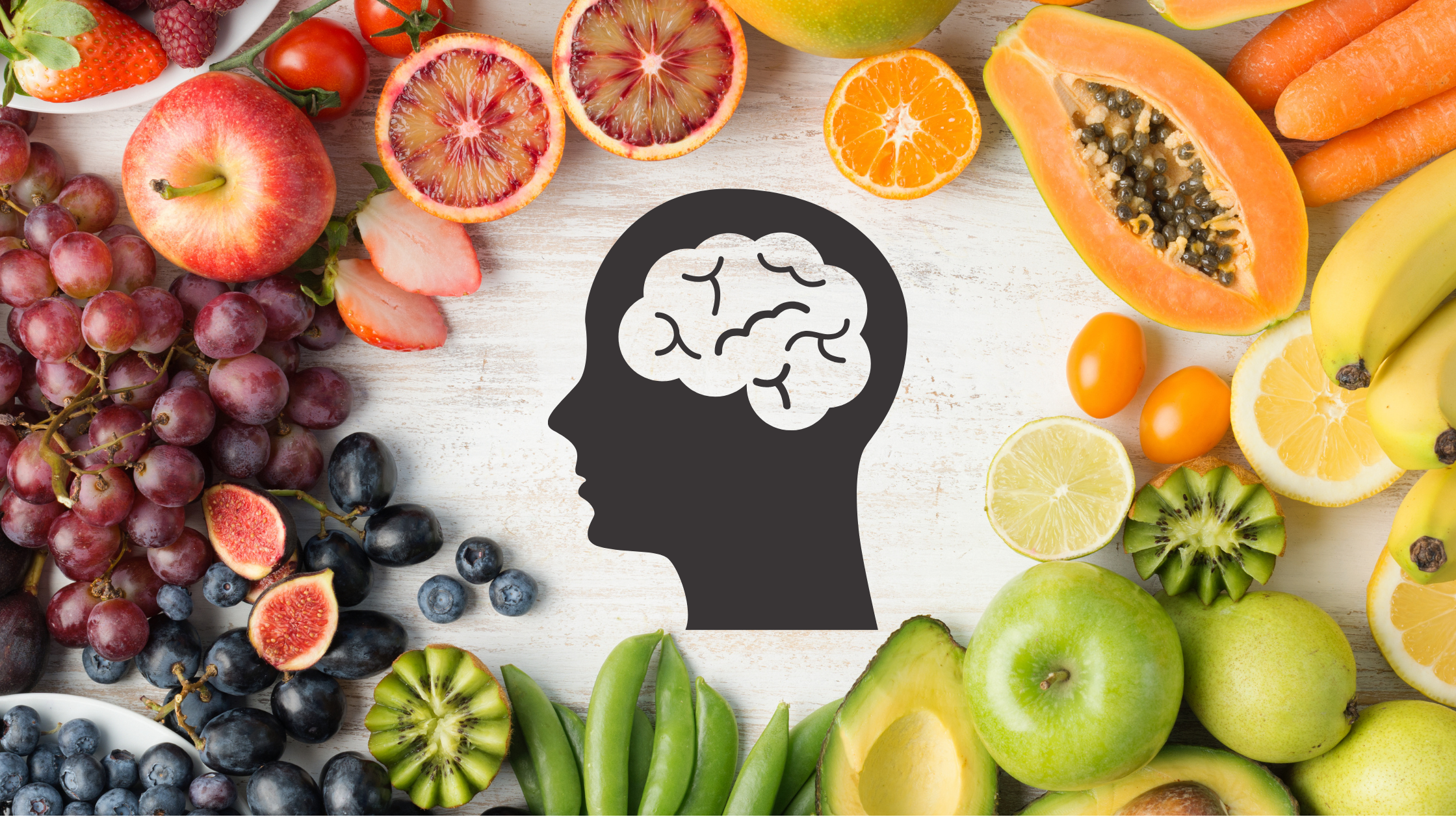
Supercharge Your Meals: Delicious Nutrition Hacks
Discover simple, yet effective nutrition hacks to elevate your meals and boost your overall well-bei...


Explore the world of nutrition and learn how to fuel your body for optimal health and performance. Dive into the latest trends and expert insights to transform your lifestyle.
Yo, so like, nutrition isn't just about eating good stuff anymore. It's actually super complex and there's all this crazy science behind how food affects your body and brain. I've been learning about this in school and it's honestly mind-blowing how much we didn't know before. The whole thing about unlocking your potential through what you eat is actually real science, not just some wellness trend on Instagram.
Here in Canada, we're seeing this huge shift in how people think about food and health. Like, my older brother works in healthcare in Toronto, and he says doctors are starting to prescribe specific diets instead of just pills for some conditions. That's pretty wild when you think about it. Food as medicine isn't some ancient concept anymore - it's becoming mainstream medical practice.
The thing is, most people still think nutrition is just about calories in and calories out. But that's like saying a car only needs gas to run properly. Your body is way more complicated than that. Every single nutrient you consume triggers hundreds of different reactions in your cells. It's like a massive chemical factory running 24/7, and the quality of your raw materials determines everything about how well it operates.
What's really cool is that nutrition science has advanced so much in the past few years. We can now measure exactly how different foods affect your DNA expression, hormone levels, and even brain chemistry. This isn't just theory anymore - it's precise, measurable science that can literally transform how you feel and perform every single day.
So here's something most people don't realize - your metabolism is basically unique to you, like a fingerprint. I was reading this research from the University of British Columbia, and they found that two people can eat the exact same meal and have completely different blood sugar responses. Some people's glucose spikes like crazy from white rice, while others barely react at all.
This is why those one-size-fits-all diet plans usually fail. Your body has its own specific needs based on your genetics, gut bacteria, stress levels, sleep patterns, and even the climate you live in. Living in Canada means dealing with long winters, vitamin D deficiency, and seasonal mood changes that all affect how your body processes nutrients.
Living in Canada creates some specific nutritional challenges that most global nutrition advice doesn't address. During our winters, which can last like six months in some places, we get way less sunlight. This affects vitamin D production, which impacts everything from bone health to immune function to mood regulation.
Plus, our food system is different too. We import a lot of fresh produce during winter months, which means nutrients degrade during transport. A tomato that travels from Mexico to Winnipeg in January has lost most of its vitamin C by the time it reaches your plate. Understanding these realities helps you make smarter choices about supplementation and food timing.
The coolest development in nutrition lately is how we can actually test and measure your individual responses to food. Companies are now offering continuous glucose monitors for regular people, not just diabetics. You can see in real-time how your body responds to different foods and adjust accordingly.
This is where nutrition gets really interesting for me personally. Your brain uses about 20% of your total energy, and the quality of fuel you give it directly affects how well you think, focus, and remember stuff. I noticed this myself when I started eating differently for hockey - my concentration during games improved dramatically.
Research from McGill University shows that certain nutrients can actually change brain structure. Omega-3 fatty acids increase gray matter volume, while processed foods with high sugar content cause inflammation that impairs memory formation. It's not just about feeling good - nutrition literally reshapes your brain over time.
The idea of using food to enhance mental performance isn't new, but the science behind it is becoming incredibly precise. Specific amino acids can boost neurotransmitter production, while certain plant compounds protect brain cells from oxidative damage.
For students and professionals in Canada, this knowledge is becoming essential. The competitive job market means you need every advantage possible. Understanding how to fuel your brain for optimal performance during exams, presentations, or high-stress work periods can make a real difference in outcomes.
Sports nutrition has evolved way beyond just protein shakes and energy bars. Elite athletes now work with teams of nutritionists who plan every meal based on training phases, competition schedules, and individual metabolic profiles. This level of precision is becoming accessible to regular people too.
What's really interesting is how nutrition affects recovery, not just performance. The right combination of nutrients consumed within specific time windows after exercise can dramatically reduce inflammation and speed up muscle repair. This means you can train harder and more frequently while reducing injury risk.
Canadian athletes face unique challenges with extreme seasonal variations. Summer training in 30°C heat requires completely different hydration and electrolyte strategies compared to winter training in -20°C conditions. Your body's nutrient needs change dramatically based on temperature, humidity, and daylight exposure.
Understanding how to adjust macronutrient ratios, meal timing, and supplementation based on seasonal training demands can prevent the performance drops that many athletes experience during seasonal transitions.
This is probably the most important aspect of nutrition that people don't think about enough. Many chronic diseases that are common in Canada - like diabetes, heart disease, and certain cancers - are largely preventable through proper nutrition. But it's not just about avoiding bad foods; it's about actively using food as medicine.
Canadian healthcare data shows that diet-related diseases cost our system billions of dollars annually. But more importantly, they rob people of years of healthy life. The good news is that nutritional interventions can be incredibly powerful when applied correctly and early enough.
Chronic inflammation is like a slow-burning fire in your body that contributes to almost every major disease. The foods you eat either fuel this inflammation or help put it out. Understanding which foods are inflammatory for your specific body can dramatically improve how you feel and function.
Your immune system is also heavily influenced by nutrition. About 70% of your immune cells are located in your gut, so the health of your digestive system directly impacts your ability to fight off infections and diseases. This became especially relevant during the pandemic when people realized that nutritional status significantly affected COVID-19 outcomes.
The biggest challenge with nutrition isn't knowing what to eat - it's actually implementing changes consistently over time. Most people try to change everything at once and then give up when it becomes overwhelming. The key is understanding behavior change psychology and applying it to nutrition habits.
Successful long-term nutrition changes require systems thinking. Instead of relying on willpower, you need to create an environment and routine that makes healthy choices automatic. This might mean meal prepping on Sundays, keeping healthy snacks visible, or finding restaurants near your work that offer nutritious options.
Navigating nutrition in Canada requires understanding our unique food landscape. We have access to incredible local foods during summer months but rely heavily on processed and imported foods during winter. Learning to work with these seasonal patterns instead of fighting them makes nutrition changes much more sustainable.
Food costs in Canada have also increased significantly, especially in northern and remote communities. Understanding how to maintain nutritional quality while managing budget constraints requires specific skills and knowledge that generic nutrition advice doesn't address.
The nutrition field is evolving rapidly, with new technologies and research methods providing insights that seemed impossible just a few years ago. Artificial intelligence is now being used to analyze complex interactions between genes, gut bacteria, lifestyle factors, and food responses to create highly personalized nutrition recommendations.
In Canada, we're seeing the emergence of precision nutrition clinics that use advanced testing and monitoring to create individualized nutrition protocols. This represents a shift from generic dietary guidelines to truly personalized medicine approaches that account for individual biological variability.
Understanding nutrition science and its practical applications has become essential knowledge for anyone serious about optimizing their health and performance. The days of following generic diet trends are ending, replaced by evidence-based, personalized approaches that recognize the complexity of human biology and the power of proper nutrition to transform lives.
Whether you're a student looking to improve academic performance, an athlete seeking competitive advantages, or someone interested in preventing chronic disease, mastering nutrition science provides tools that can literally unlock your full potential. The investment in learning these principles pays dividends for the rest of your life.
json
Discover simple, yet effective nutrition hacks to elevate your meals and boost your overall well-bei...

Unlock the secrets to fueling your fitness journey with the right nutrition. Learn the fundamentals ...

Unlock the secrets of macronutrients and learn how to create a personalized nutrition plan that supp...